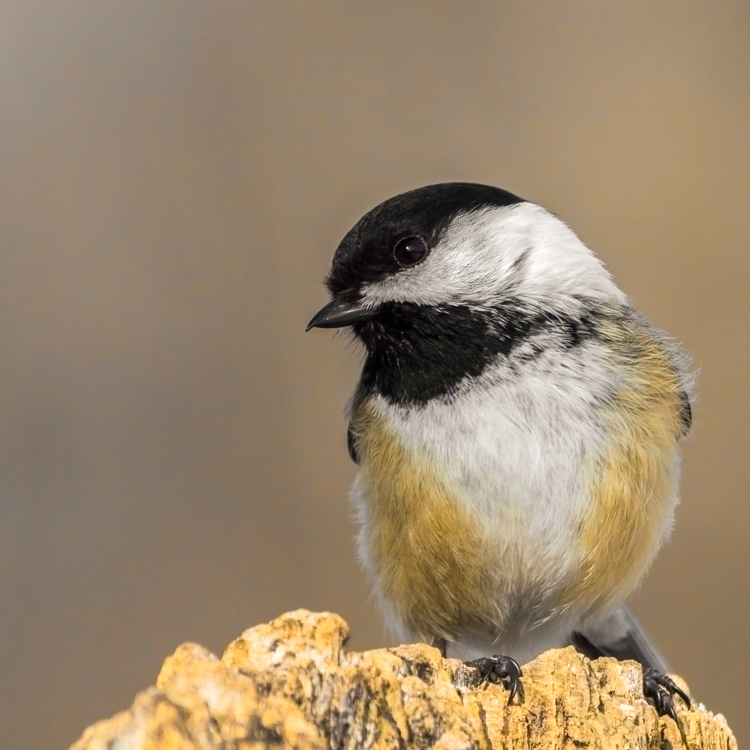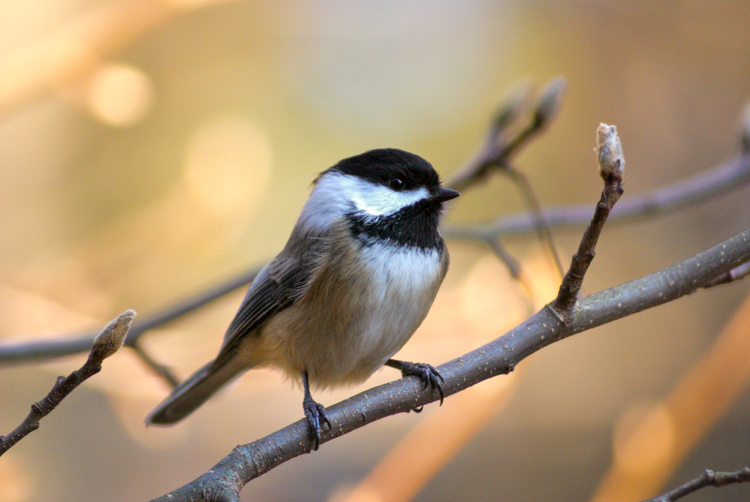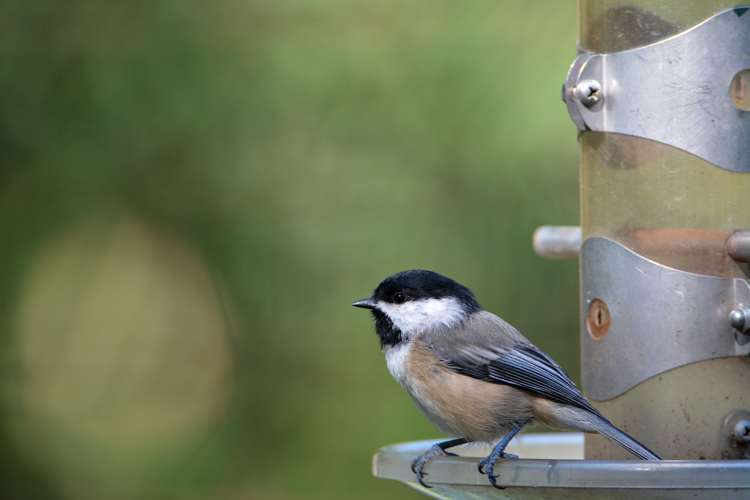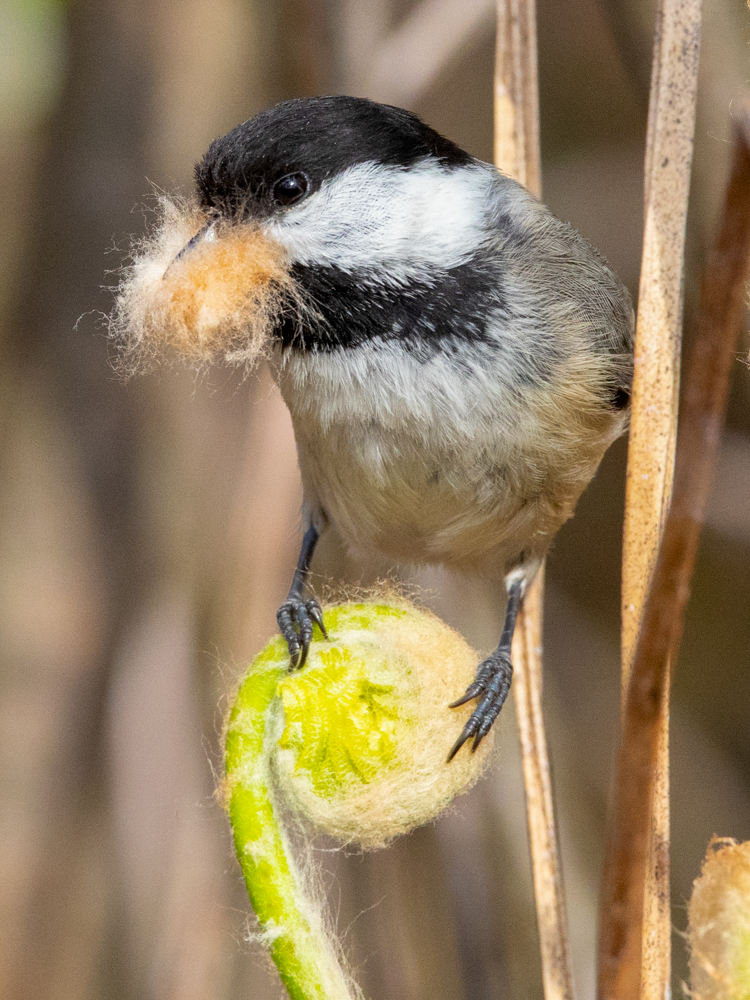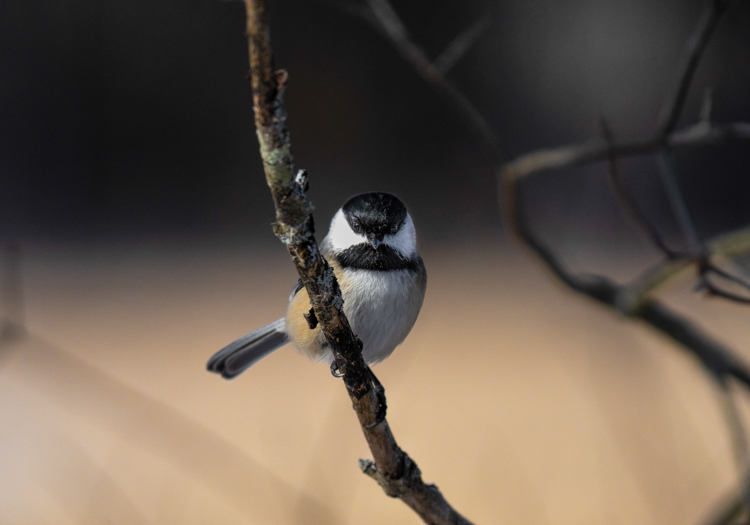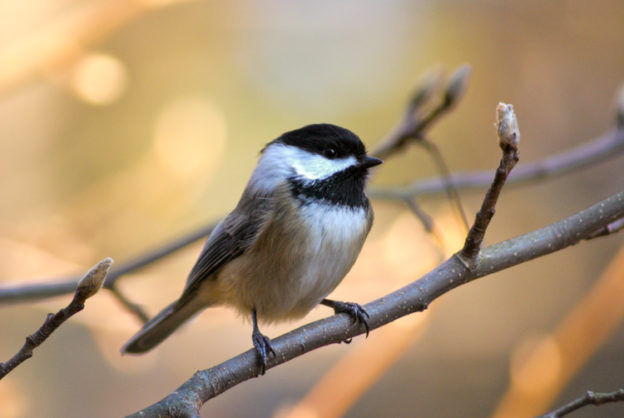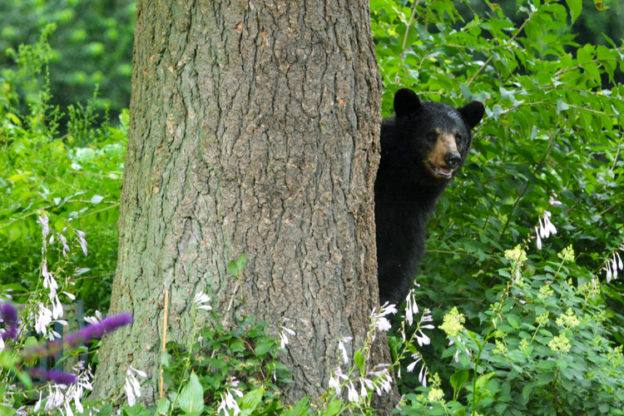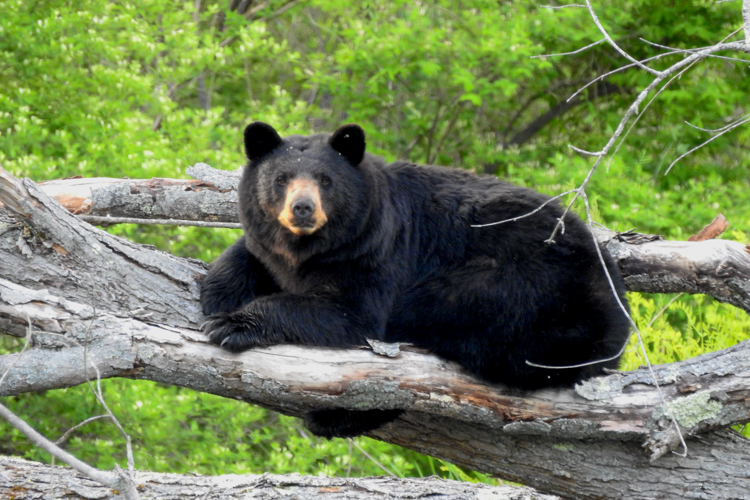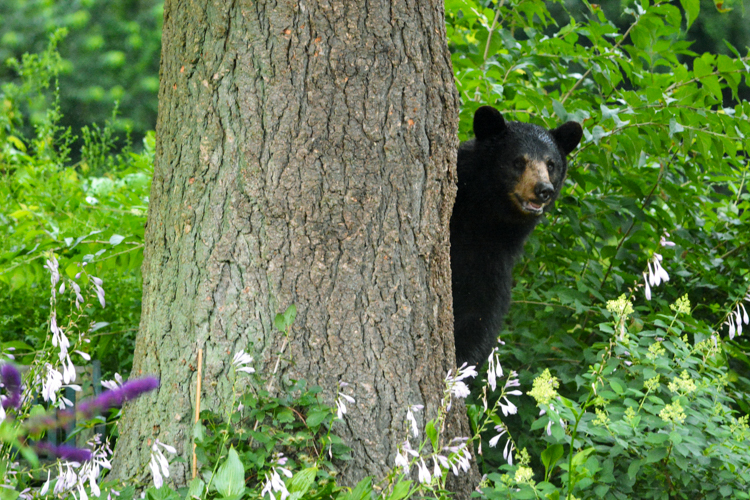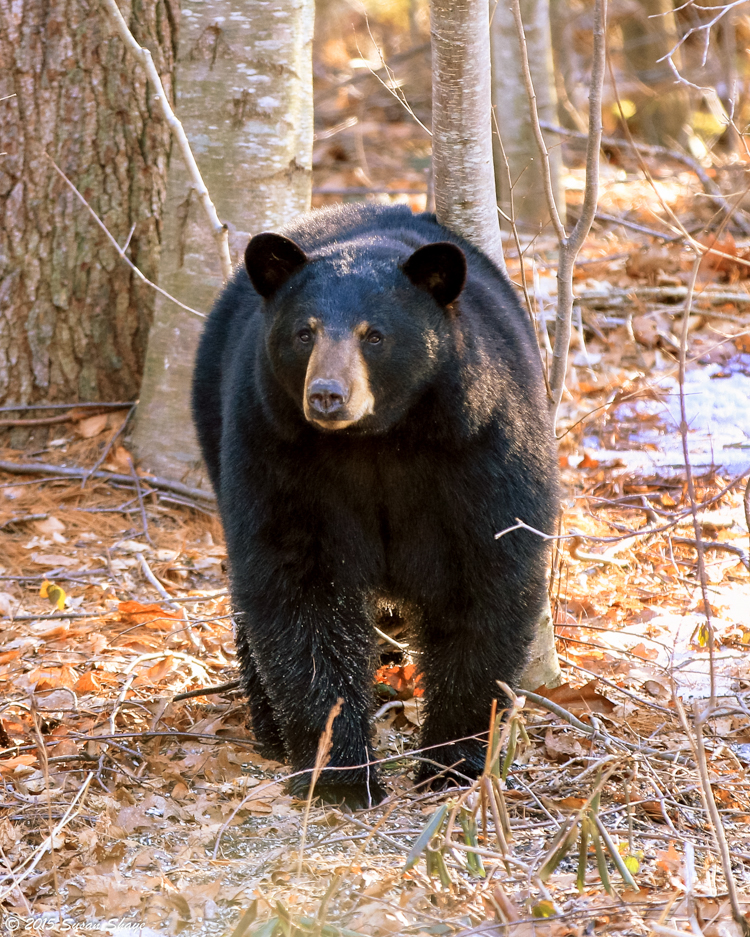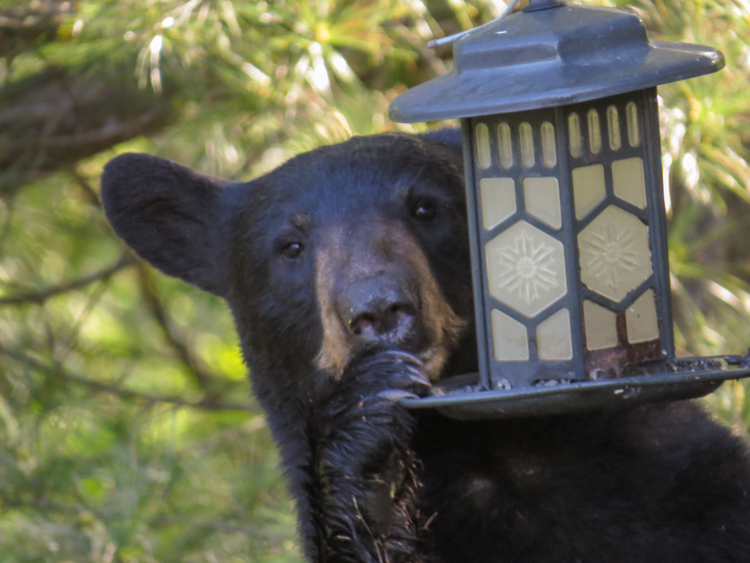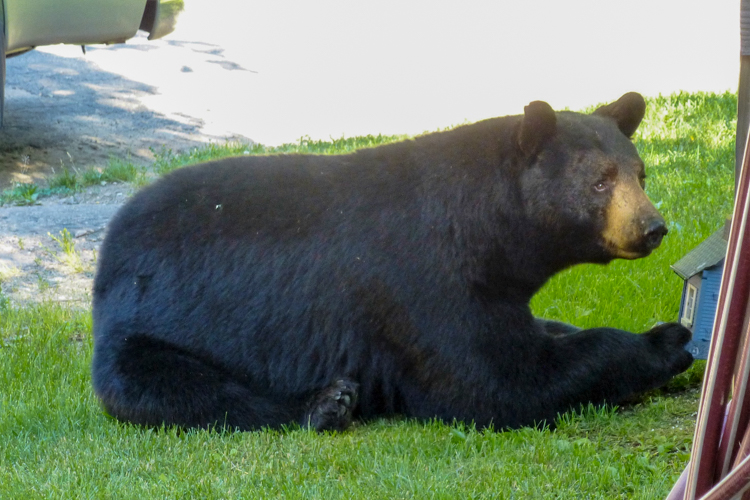Spring at last! Our early migrant birds are returning in ever-greater numbers, but many of the year-round residents have already been preparing for nesting season for weeks, including our beloved Massachusetts state bird, the Black-capped Chickadee.
Year-round, chickadees make their namesake call, chickadee-dee-dee, using an increasing number of dees the more alarmed or threatened they feel—an early-warning alarm that even other species of birds will respond to. But as early as mid-January, males begin singing their high, sweet fee-bee song to attract mates and prepare for nesting season.
It’s easy to confuse the chickadee’s sweet whistle with the more emphatic, raspy fee-BEE sung by Eastern Phoebes, which we should also start hearing around this time of year, but play them side-by-side a few times and you’ll quickly learn to recognize the difference:
Plenty of small migratory songbirds will associate with flocks of chickadees during spring and fall migration, so if you hear a flock of chickadees in your neighborhood, grab your binoculars—there may be an interesting migrant nearby, as well.
Enjoy these five photos of Black-capped Chickadees from our annual Picture This: Your Great Outdoors photo contest, and listen for these sweet songbirds on your next nature walk.
